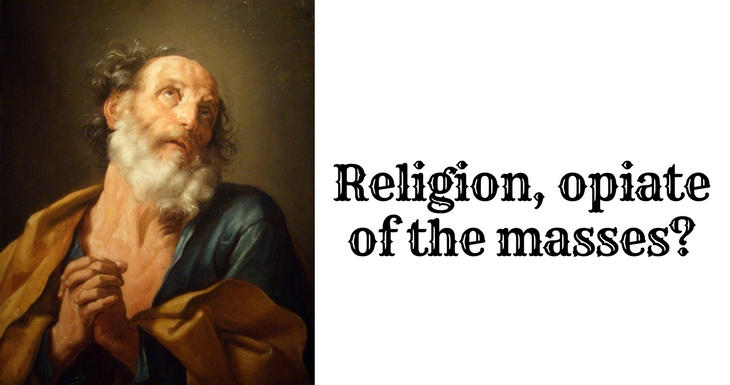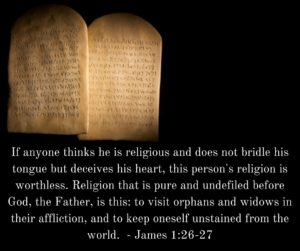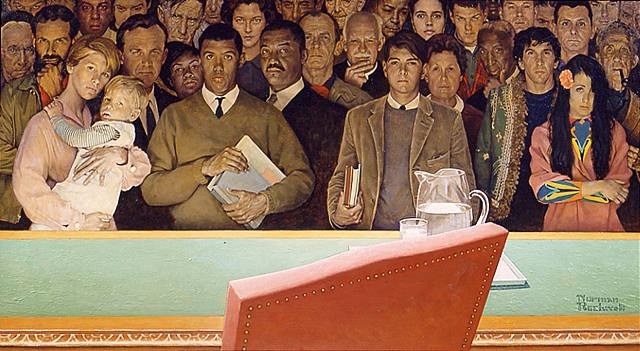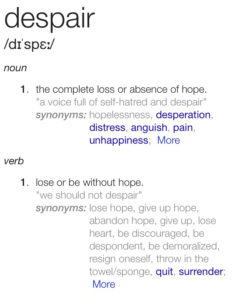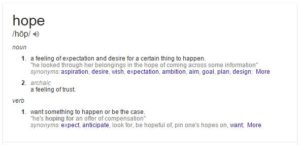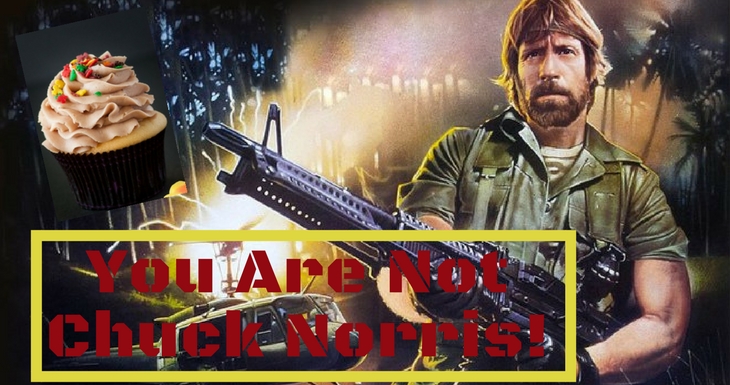
“Will you walk into my parlour?” said the Spider to the Fly,
Tis the prettiest little parlour that ever you did spy;
The way into my parlour is up a winding stair,
And I’ve a many curious things to show when you are there.” – Mary Howitt
Why do we think we are strong enough to contend with our vices? Why do we parlay with them? Cajole them? Entertain them as if they were dolls at a tea party? Why do we say to ourselves, I am mighty because I won the last battle and have therefore conquered once and for all? Do we not know that vice condescends to laugh at virtue when it locks arms with pride? Or have we forgotten to look down at our scars and remember the barbed hooks that once held us captive? Do we not consider how our previous captor gladly entices us under the guise of impotence in order to bring us under its thrall once more?
Last night my son (aged 9) accidentally hit his hand on the wall that divides the kitchen and living room as he was walking down the hall. It’s not hard to do because our house is so small. In fact, it feels like we are always bumping into things. Whether it is another person, our dogs or, (case-in-point) the walls, we seem to live in a perpetual state of collision. Now the dear reader must understand that my son had a particularly difficult day yesterday and was not in a great mood. In fact, we had spent considerable time talking about unfortunate circumstances, anger, and consequences. And so I must admit that I was rather dismayed by my son’s response to the haphazard smacking of his hand against the ubiquitous wall. He hollered at it (as if it were a demon), screamed, “You stupid wall!” and then karate kicked it with his unshod foot. Then, instead of merely cradling his bruised hand, he was now hopping up and down on the uninjured foot and hollering like a cat with buckshot in its hide. Since I am mother of the year I laughed out loud and said, “Son, you are not Chuck Norris.”
Because had Chuck Norris kicked that wall, we all know who would have won.
Now maybe you are reading this and you don’t know who Chuck Norris is. That is unfortunate but easily remedied. Thanks to Netflix and Youtube, you too can discover the phenomenon that is Chuck in all his Jiu Jitsu wielding wonder. From MIA to Walker Texas Ranger, you will be inspired and amazed by the sheer might of his fists as he smacks, breaks and generally pulverizes every human being who dares oppose him (with the exception of Bruce Lee in Enter the Dragon, whom he graciously let win). Chuck Norris is a mighty warrior and no one can stand against him.
Dear reader, you are not Chuck Norris. You may think you are Chuck Norris but that is only because you don’t know any better. You may post memes on your social media feed that indicate you are as strong and tenacious as Colonel Braddock, a Vietnam Vet who was tied up by his ankles while a rat tried to gnaw off his face, but those are just pictures. You may tout your gnarly bear-ness as you scowl at your obnoxious co-worker who burps like a billy goat, but you cannot actually turn into a bear like Chuck does as Jebidiah McKenna in Forest Warrior. In fact, you only wish you could spray the enemy with bullets like Lonewolf McQuaid in The Uzi. Yes, you may think you are something, but I promise you, you are not. There is only one Chuck Norris and you are not him.Because if Chuck Norris met a cupcake in a back alley, you can rest easy tonight with the knowledge that he would not enter into a conversation with it. He would not pelt it with questions. He would not even ask it if it felt lucky, punk! He would simply demolish it with one kick to the gonads. And to be certain, he would never even think about going into said alley if he thought for one moment he would not win that fight. Because Chuck Norris is not just strong, he is smart.
So why do we run down dark alleys to fight battles we have lost before? Why do we chase goblins who have made a practice of mincing us like meat? Why do we mock our vices with promises, flippant jokes, and harangues? The vice is just waiting to clobber us and—if we give it an inch—rest assured it will take a mile.
And now that I’ve clichéd my poor reader to death, I just want to say that I am foremost guilty of these cloistered consultations. I parlayed with Christmas cookies in December and found out I am not Chuck Norris either. So here we are three months post-holiday and I’m still trying to lose the 7 pounds I gained. I thought I was feisty! I thought I was wiry and lithe. Alas! I am just soft-bellied Margaret getting hog-tied and walloped by my sugar-addiction one again. It is an exercise in madness if ever there was one.
So for me (and others who are not Chuck Norris!) here are a few healthy reminders on this journey to learn discipline:
All the sense in the world is nonsense if we do not cultivate a healthy fear and a vibrant loathing for that thing which would slay us.
We must not fall prey to the devil’s prime strategy, that horror of the same old thing. We play at novelty like a cat plays with catnip. But the idea of perpetual novelty is a trap, not unlike the spider’s lair, where we will be bound head to foot and robbed of our freedoms. We don’t have to come up with a new strategy. Stick with what works.
The horizon is littered with the bleached bones of those who have fallen around us. We need only discern their peril in order to avoid the same fate. We need not goad them, but we should at least study how and why they lost.
Freedom does not come free. A sacrifice by nature pinches a person. But that small pain is but a shadow of the chains that once held us in the dungeon of despair.
Be the person you want to be. Each choice is but a tally in the game of life. Remember that no one wins the game by letting the other team win just because they gave up one (or 10) goals.
Remember that you only get one body for your whole life. Your body is a precious commodity. Treat it like the temple it is.
And finally, please know that you are not an island (no matter what Dolly Parton and Kenny Rogers say!). We live in community with other people and our actions and inaction have consequences. So ask for help. Find a mentor. Make a new friend. Be a friend to another. And avoid those people who play the fly. You don’t need that kind of negativity in your life!
In short, remember Chuck Norris. You may not be him, but you can aspire to be him when you grow up. And if you have trouble visualizing this, watch MIA. You won’t regret it.

